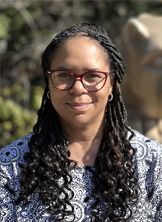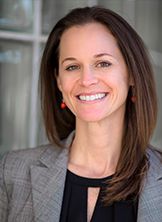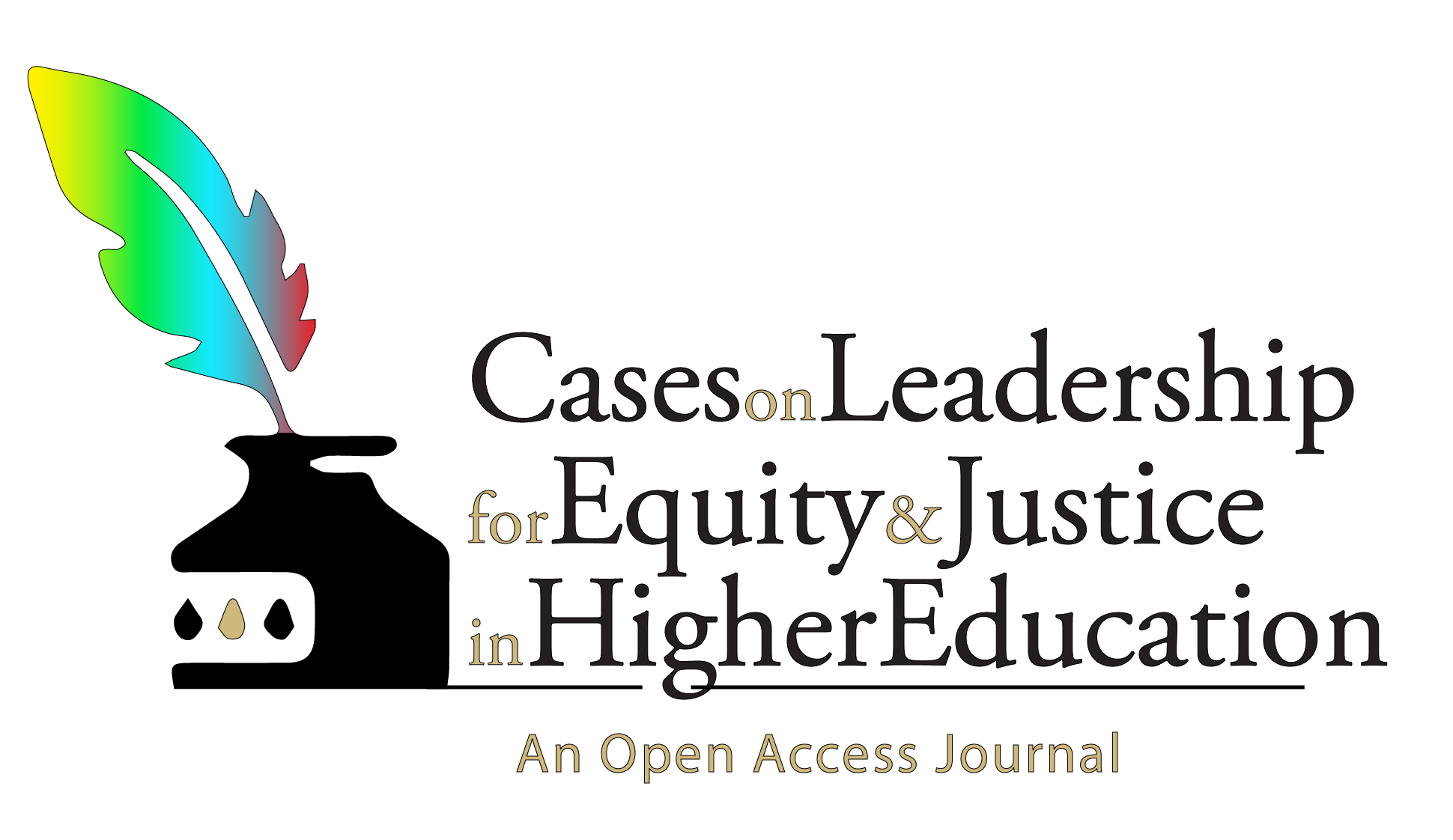Karen Armstrong, Pennsylvania State University
Katy Herbert Kotlarczyk, University of Colorado Boulder
Valeria Morales, University of Colorado Boulder
Elizabeth Ramos, University of Colorado Anschutz Medical Campus
Abstract
This case centers on the complexity of addressing and supporting issues of mental health within institutions of higher education. Specifically, the case considers the complex and often nuanced situations that complicate an employee’s ability to receive appropriate mental health care, especially if the employee is also a student. Across the nation at Research 1 institutions, graduate assistants balance the simultaneous roles of student and employee, often interacting with an advisor who also becomes a supervisor. This intersection of roles may challenge a student-employee’s ability to understand their rights or recognize which institutional policies apply to them. This case positions the experience of a graduate assistant whose mental health is heightened as he confronts the demands of balancing his academics, graduate assistant position, and self-care.
Keywords: Mental health, graduate students, equity, leave policy, Family and Medical Leave Act (FMLA)
Cite as: Armstrong, K., Kotlarczyk, K. H., Morales, V., & Ramos, E. (2022). Mental health missteps: A graduate student case study. Cases on Leadership for Equity and Justice in Higher Education, 2022(4).
Part 1
Nathaniel Easton grew up in a family that prioritized education. As an only child, his parents pushed him to get “straight As” and secure scholarships to the best college. As a young adult now, Nathaniel recalls the intense anxiety he felt throughout childhood. He didn’t know his experiences were different from others until one day he collapsed in the bathroom before a physics exam. A friend found him there unconscious and took him to the school nurse, who diagnosed a panic attack. Ultimately and out of embarrassment, he didn’t tell his parents what had happened. A few similar incidents occurred throughout high school and undergrad. But Nathaniel was always able to brush things off, ignoring his anxiety when it was inconvenient and hiding the issue from his parents, teachers, and friends.
Acceptance to the PhD program in earth sciences at Middletown University (MU) is a dream come true for Nathaniel. It's the best program in the country, right in the backyard of his hometown, Memphis, Tennessee. MU offers 92 doctoral degrees with over $957 million in total research expenditures (Carnegie Classification of Institutions of Higher Education, n.d.). A major research (R1) public university with an enrollment of 52,161, PhD students in their first academic year are eligible for graduate assistantships which are typically half-time (50%) work appointments (i.e., 20 hours per week). At least ten hours of this work each week must be directly related to the graduate student’s degree program; for example, serving as a teaching assistant for an undergraduate course in the same field as the graduate student’s studies. The specific teaching, research and administrative responsibilities of the graduate assistant are assigned by the immediate supervisor. At MU, to be eligible to continue working in a graduate assistant role each year, students must be enrolled in at least eight credit hours, maintain a minimum of a 3.0 GPA, demonstrate reasonable progress toward their degree, and satisfactorily fulfill their responsibilities as a graduate assistant. The associated benefits of the job are significant: a monthly stipend, 100% tuition benefit, 85% of the premium for student health insurance, accrual of one hour of sick leave for every 30 hours worked, and eligibility for Workers’ Compensation and the state-retirement fund. If Nathaniel does well and retains this graduate assistant position, his course costs will be covered, and he will receive a small paycheck to help cover his expenses. He desperately needs these funds to cover the cost of school – he already has an overwhelming amount of student debt from his undergraduate education.
Nathaniel’s advisor, Elizabeth Liverly, PhD, is famous in the Earth sciences field. She offers him a prestigious position on her new lab project with only two other graduate assistants, Izzy Furston and Smith Delgado, both in the fifth year of their PhD programs. Dr. Liverly schedules Nathaniel to work five days a week, four hours a day (20 hours per week). Most of this time will be spent in the lab, with a few hours each week spent teaching, grading, and holding office hours. The 20-hours-per-week schedule sounds demanding, especially when paired with classwork that is already much more challenging than he expected.
Halfway through Nathaniel’s first semester, Dr. Liverly notices that Nathaniel has been late for his lab assignment at least six times. He hasn’t graded the undergrad Bio 101 papers that were due yesterday. Two students told her he did not show up for his office hours. Dr. Liverly calls Nathaniel into her office to find out what is going on. She sees Nathaniel’s potential as a researcher and scholar – that is why she let him join her lab as just a first-year student. She is surprised and concerned by this unexpected lapse in his responsibilities.
During her conversation with Nathaniel, Dr. Liverly asks a series of questions: What is going on? Is the schedule too demanding for you? Do you have something going on that I should know about? Are you sick or unwell? Do you need any help? Is there anything the university or I can do to support you to be more successful here at Middletown? Nathaniel feels uncomfortable with this heightened attention from his advisor, who also serves as his supervisor. He has hidden his anxieties from authority figures for so long. He admires Dr. Liverly and doesn’t want to disappoint her. Dr. Liverly spends another five minutes asking him to explain his behavior and offering to help if she just knew what was going on. She states her concerns that the lab will suffer if he is not “at 100%” every day and that she is genuinely worried about him.
Nathaniel finally breaks down crying. He explains the crippling anxiety he is experiencing due to the pressures and demands of his studies and his graduate assistant position. He shares he has an anxiety disorder and depression. He is currently taking an anti-anxiety medicine and sees both a psychiatrist and a psychologist. Dr. Liverly, a mother herself with three adult sons, wants to help Nathaniel take better care of himself. She insists that Nathaniel take time away from the lab, agreeing to make the arrangement informal until he’s ready to come back. Nathaniel reluctantly agrees. He is a bit embarrassed by all he shared about his mental health condition and that he cried in front of Dr. Liverly. He cannot tell whether Dr. Liverly genuinely cares about him or whether she is going to treat him differently now that she knows so much about his anxiety disorder.
At the Earth sciences department meeting the next day, Dr. Liverly shares that Nathaniel will be taking “some time off” due to his mental health, explaining that he is stressed out and anxious. Nathaniel was unable to attend the staff meeting due to a conflicting class. The two fellow graduates in the lab, Izzy and Smith, like working with Nathaniel and have come to respect him as a hard worker, despite some his absences. But when they hear about his “mental health,” they cannot help but chuckle a bit and exchange quick frustrated looks: they are stressed out, too, and they do not get to take any time off. They believe all graduate students experience some level of anxiety and learn to cope with it and not complain. They nearly groan when Dr. Liverly explains that the two of them can easily pick up Nathaniel’s lab shifts to help.
Three weeks later, Izzy and Smith meet up with Nathaniel for coffee to see how he is doing. Things have only gotten worse for Nathaniel: without the structure of the lab, and with the continued stress of classes and schoolwork, he is barely hanging on. He is visiting with his psychologist every day virtually and skipping some of his class sessions because he cannot get out of bed. His situation has never been like this before. His psychologist suggests socialization would be good for him. He uses all his energy to walk across campus to the coffee shop and meet with Izzy and Smith for an hour over a mocha.
Back at the lab the next day, the department chair is checking in on Dr. Liverly’s project. Izzy chats freely, mentioning that they only have two grad assistants on the project right now. Dr. Spodeck is surprised because he knows there is funding for a third. When Izzy explains that Nathaniel is taking some time off for “mental health” reasons (using air quotes), she cannot help but let slip that Nathaniel seemed just fine laughing with them over their mochas the day before. She tells Dr. Spodeck that it is hard not to resent Nathaniel for getting a vacation when the rest of them are stressed out and now must work twice as hard to cover for him. Dr. Spodeck is concerned that he had not previously heard about this situation.
Key Players
- Nathaniel Easton, first-year graduate student and assistant
- Dr. Elizabeth Liverly, supervisor/advisor
- Izzy Furston and Smith Delgado, Nathaniel’s fellow graduate students/friends
- Dr. Spodeck, Earth sciences department chair
Class Discussion Prompts, Part 1
- Consider the various roles and responsibilities of each person involved in Nathaniel’s life. Who should be involved but has not yet been introduced?
- What are the primary issues of concern?
- Discuss the concepts of discrimination and ableism as it relates to Nathaniel’s sharing of his mental health challenges.
- Assess Dr. Liverly’s handling of Nathaniel’s situation. What did she do well? What could she have done differently?
- If you were Dr. Spodeck, what would you do next and why?
Part 2
Dr. Spodeck and Dr. Liverly have a long conversation about Nathaniel’s situation. They discuss whether the office of human resources has been consulted, or any forms have been submitted to provide Nathaniel with more formalized leave time, monitor his situation, and provide additional support. They verify Nathaniel’s academic record and see that he has not been attending his classes recently. Dr. Spodeck and Dr. Liverly wonder if the graduate student affairs office is aware, or if Nathaniel has reached out to campus resources on his own.
Around the same time, Nathaniel meets with Janie Smead, an advisor from the graduate student affairs office, who requested a meeting with him because he has been absent from his classes and has not logged into the course. After listening to Nathaniel, Janie encourages him to meet with her colleague in the office of human resources, Jamaal Angus. Jamaal has been in HR supporting undergraduate work-study students as well as graduate assistants at MU for the last ten years. Nathaniel was surprised to learn that such a person even existed for on-campus student-workers like himself.
At the meeting with human resources, Jamaal shares some of the potential resources available to students and employees when they are dealing with personal health situations. Unfortunately, Nathaniel learns he may not be eligible for the FMLA. As a first-year graduate assistant, Nathaniel works 20 hours per week. Jamaal explains that to qualify for FMLA, an employee (even if they are a student worker) needs to work at least 1,250 hours in the immediately preceding 12 months (U.S. Department of Labor, 2022). Since this is Nathaniel’s first semester as a graduate assistant, he has not yet worked even half that amount of time. During the meeting, Nathaniel shares with Jamaal the accommodation request paperwork provided by his psychologist indicating he is capable of doing his research job virtually. Telecommuting would help address his anxiety disorder and depression, allowing him to remain engaged without overwhelming him. Nathaniel does not feel comfortable sharing this information with Dr. Liverly or others. He would like his health diagnosis to remain confidential and does not want his supervisor or peers to know about it.
After ten days, Nathaniel and Dr. Liverly are notified by the office of human resources of the approval for Nathaniel to telecommute for the next eight weeks. Nathaniel is hopeful that these accommodations will help him start working on the project again, while giving him the space he needs to manage his symptoms and help him recover. Knowing he will have a job, a home, and income – and be able to stay in his PhD program – is a tremendous relief.
After Dr. Liverly is notified of the accommodation, she is very concerned about allowing Nathaniel to work remotely. She does not think it is fair for Izzy and Smith, the lab’s other two graduate students, to cover Nathaniel’s responsibilities in the lab for another eight weeks. She also worries this could slow the project and delay the completion of their dissertations. Dr. Liverly believes there is a limited amount of telework for Nathaniel each week. She expresses these concerns directly to Nathaniel, telling him she does not think this is a reasonable accommodation because she needs to consider what options will work best for her lab and the other students.
Additional Players
- Janie Smead, advisor from graduate student affairs office
- Jamaal Angus, human resources representative
Class Discussion Prompts, Part 2
- What are the equity issues at play here?
- What do you think Dr. Liverly’s options are?
Teaching Notes
Additional Discussion Prompts for Facilitator:
Part 1
- If you were Dr. Spodeck, what would you do next? Who would you contact and what questions would you ask?
- Who is missing from the conversation?
- If you are a supervisor or leader at your institution, are you well-trained on laws that support employees, such as FMLA and its benefits?
- What role does the supervisor play in navigating benefits and creating accommodations?
- What is the institution’s responsibility in protecting the privacy of the student’s health situation?
- Are the obligations different when viewing the student as an employee versus a student? What is the graduate assistant’s primary role?
Part 2
1. What are the student’s rights under the FMLA? How does the Americans with Disabilities Act (ADA) come into play? Who gets involved to determine eligibility?
2. What are some of the resources Nathaniel should have access to that haven’t been offered yet?
3. What other people on campus should be aware of Nathaniel’s situation?
Alternative Solutions Following Class Discussion:
1. Dr. Liverly asks Nathaniel if he would consider returning to the lab on a reduced schedule as this would allow him to continue to be engaged. He is also given the option of leaving early if he is feeling overwhelmed, as long as he informs a supervisor of his departure (email or text is acceptable). Dr. Liverly would like Nathaniel to explore this possibility with HR and his medical team, to ensure this is an acceptable alternative. Dr. Liverly also shares this as an option for Nathaniel to explore, not a requirement.
2. Dr. Liverly requests the option to hire an additional lab tech on an hourly basis. This will meet the short-term need for all students involved.
3. Dr. Liverly offers extra credit opportunities to undergraduate students willing to be trained and temporarily assist in the lab.
4. Dr. Liverly consciously chooses to treat this like any unexpected departure, resolving the staffing issue without demonstrating resentment, because there is a need for disability accommodations.
5. Explore other non-ableist, staffing-focused options with the class.
Mental Health and Higher Education
As entities that accept federal and state funds, most IHEs are required to follow national, state, and local laws, including the federal FMLA (Wage and Hour Division, 2022, May) and Americans with Disabilities Act (Office of Disability Employment Policy, n.d.). This case study takes these factors into consideration. As you guide students through the case study, it is also important to explore the role of Campus Assessment Response and Evaluation (CARE) teams. These are people responsible for addressing and monitoring the needs of students in crisis. Consider how these roles may function within the framework of this case study. The importance of a CARE team is to provide equitable support for those individuals on campus who may need additional support or are experiencing trauma.
Leadership Theories
Two theories applied during this case study are Critical Social Theory and Situational Leadership Theory. Combined, both theories can be implemented to meet the needs of all the students involved, as well as the administrators, faculty, and university staff.
- Critical Social Theory challenges mainstream political views or social practices to assess and expose issues of oppression (Craven, 2020). Evaluating the case study through a Critical Social Theory lens is a beneficial aspect of the exercise because it deliberately encourages the promotion of less oppressive social arrangements in college and university settings. As a person with a disability, Nathaniel needs greater flexibility to address his mental health needs. Accommodations are needed in the classroom, workplace, and in peer engagements. As his mental health challenges increase, the consequences accumulate in various facets of Nathaniel’s life. The oppressive challenges also intensify, because a cumulative impact occurs as the mental health challenges worsen. Those suffering from mental health challenges are at increased risk for homelessness, food insecurity, increased anxiety, and depression, as we saw when Nathaniel’s disorder escalates. Deliberately reducing the impact of oppression during the case study brings educational equity to the forefront for students experiencing mental health symptoms.
- Situational Leadership Theory recognizes that many styles of leadership can work well, depending on the context or task being addressed (Thompson, 2009). Utilizing Situational Leadership Theory during this case study is also essential as the higher education leader must address various needs with flexibility. The needs of the peer graduate assistants may require a telling approach. The student may not understand the “realness” of invisible disabilities. Therefore, more direct guidance may be needed for their professional development. However, a participating approach may be required when working with the faculty. This case study allows students opportunities to gauge the appropriateness of various leadership styles based on the circumstance. We encourage you to have students apply the Situational Leadership Theory to the various characters broadly to understand the practical application of the theory.
References
Awards to graduate students, 20 U.S.C. § 1135c et seq. (1998). https://www2.ed.gov/programs/gaann/legislation.html
Carnegie Classification of Institutions of Higher Education. (n.d.). Basic classification description. American Council on Education. https://carnegieclassifications.acenet.edu/classification_descriptions/basic.php
Craven, S. (2020). A pedagogy of community: Teaching critical social theory. Transformations: The Journal of Inclusive Scholarship and Pedagogy 30(2), 127-140. https://www.muse.jhu.edu/article/787384
Thompson, G., & Vecchio, R. P. (2009). Situational leadership theory: A test of three versions. The Leadership Quarterly, 20(5), 837–848. https://doi.org/10.1016/j.leaqua.2009.06.014
Wage and Hour Division. (2022, May). Fact Sheet #28O: Mental health conditions and the FMLA. U.S. Department of Labor. Retrieved June 1, 2022, from https://www.dol.gov/agencies/whd/fact-sheets/28o-mental-health
About the Authors

Karen Armstrong is a clinically trained counselor, with extensive experience supporting minoritized and disenfranchised populations. She is a diversity, equity, inclusion, and belonging subject matter expert, who develops strategic plans yielding systemic change. Her diversity, equity, inclusion, and belonging best practices are featured in the book, We're Not OK Black Faculty Experiences and Higher Education Strategies. Karen also serves on the editorial board for the Cases on Leadership for Equity & Justice in Higher Education.

Katy Herbert Kotlarczyk (she/her) serves as the Vice Chancellor for Advancement at the University of Colorado Boulder, overseeing fundraising and engagement efforts for the campus. She is currently a doctoral student at the University of Colorado Denver with a focus on Educational Equity in Higher Education.

Valeria Morales received her BA in Psychology and Spanish from the University of Colorado Boulder in 2009. After holding several university positions, Valeria joined the Office of Pre-College Outreach and Engagement at the University of Colorado Boulder as the new Rural Pre-Collegiate Program Manager. In this position, she supports the institution’s efforts to expand pre-collegiate programming into rural communities of Colorado.

Elizabeth D. Ramos joined the University of Colorado School of Dental Medicine in 2019. She serves as the Assistant Dean for Academic Achievement and Equity, and is an Associate Professor in the Department of Surgical Dentistry and in the Department of Community Dentistry and Population Health. Prior to moving to Colorado, she was the Director of Program and Institutional Assessment at Indiana University School of Dentistry. She has been in dental education full-time since 2011 following ten years of private practice in Ohio.
